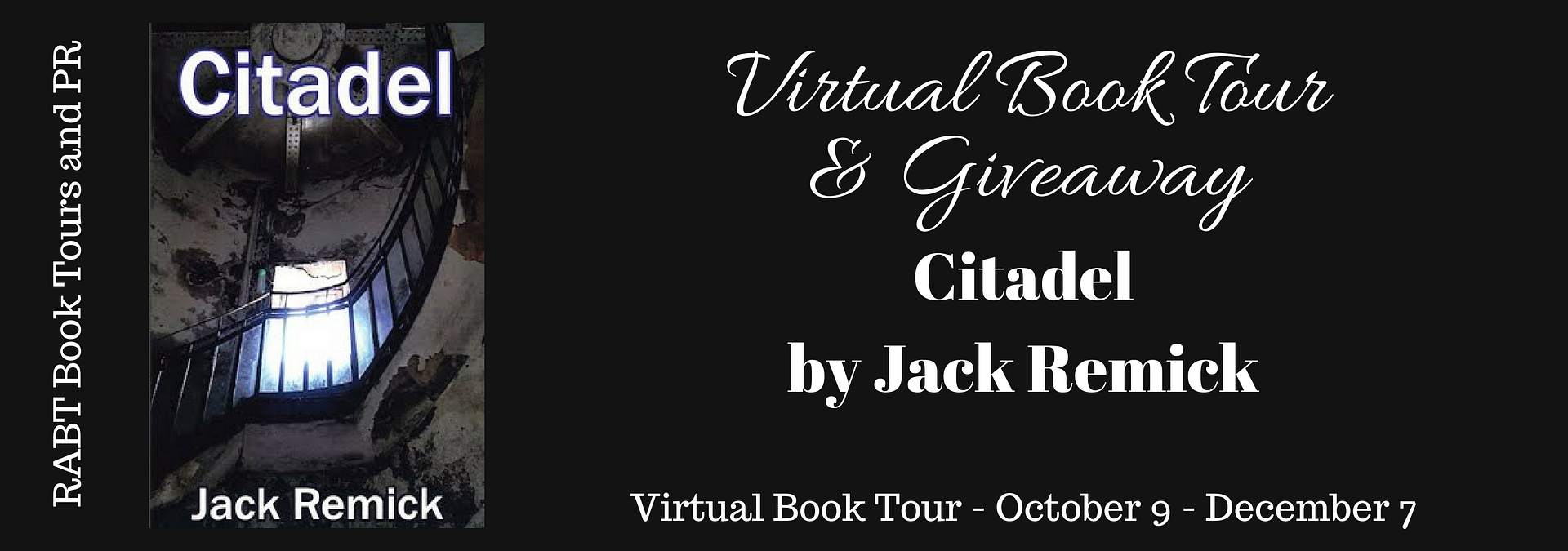"I loved the book and I'm suggesting it to all the writers, editors and women I know as a must read. You blew me away... the book drew me in completely... great experience!
I'm not sure how you managed to come up with this... let alone research it... a story usually follows one or two Characters...[...] I read the book in short spurts and longer chunks depending on opportunity... but never had a problem of falling back into the story... you had me from page one to the end. Great job" -- Wally Lane, filmmaker, screenwriter.
Irven DeVore, an evolutionary biologist, writes that "Males are a breeding experiment run by females." What if, in fact, women ran everything? What if women rejected the culture of rape and violence to take control of their lives in the safety of the Citadels? What if women could exist without males? CITADEL is a metafictional, apocalyptic story braided into a contemporary post-lesbian novel built on genetics.
GUEST POST
Character Work in The Novel
Vulnerability is the key to the sympathetic character. A wound, coupled with character flaw, gives you a human character. The more obvious the wound, the more likely the reader is to identify with the character.
Pain, shame, guilt, and betrayal.
Getting to know the character’s shame and guilt leads you to the essential element of dramatic conflict that all stories must have in order to engage the reader.
Getting to know the character’s shame and guilt leads you to the essential element of dramatic conflict that all stories must have in order to engage the reader.
In a novel titled The Pilot’s Wife, for example, the Pilot is guilty of adultery, fathering a child out of wedlock, lying to his wife, betraying his daughter and wife, cheating, stealing, and concealing it all (his humungous Secret). His is a dense packet of drama waiting to be revealed.
Because the Pilot has betrayed his wife, and because she discovers his betrayal, she lives in anguish. Your characters have a history of anguish. In your writing, find out what causes your character’s anguish and then ask what makes her happy. This simple polarity of character emotions spins out into an array of traits and possibilities.
If you write about your character in the past and then in the present and then the future, you deepen character as well as introduce aspects of plotting. What will become of her? Will she find happiness? Defeat? Plotting a future for your character gives you a handle on the narrative present.
If you answer the following questions about your main character and then repeat for the four most important characters in your novel, you’ll have a pretty good start on a complex character.
Betrayal: How many times has your character been betrayed? Make a list. How deep is the betrayal? Who? When? Why? How deep is the wound?
Shame: What is she ashamed of?
Want, Need, Can’t:
What does your character want?
Need. What does she need?
Can’t. What can’t she have.
Plotting:
Thwarting Desire and Plot: Because human beings react to being thwarted, Desire always leads to Action. Action is what characters do to achieve their wants, to satisfy their needs. Plot can be defined as the chain of events your characters undertake to get what they want. How does your character react when she finds out she can’t have what she wants?
Denial: Denial leads to action. Action leads to pain. Who gets hurt?
Need merging into Obsession: What does your character need? A hundred thousand bucks a year? New wardrobe every six months? A new house? How strong is that need? Is it strong enough to become an obsession? When need becomes an obsession, need melds into drive. Need is the deep, inner aspect of character that cannot be ignored. Don’t ignore it.
The Driven Character: How driven is your character? What will she do to get what she wants? Murder? Steal? Cheat? Betray her husband? lover? children? mother? What will she do when her drive is deflected or even betrayed?
Joining Need to Want and Can’t: When your characters have needs and wants but can’t gratify or satisfy them, you have an equation that screams for Action. Action is what your character does to meet her needs, to get what she wants. Does your character want to be wanted? Are there layers of want? Why does your character need to be wanted? Deepen need and want and can’t with shame, guilt and betrayal and you have character traits that will engage your reader.
Doubt—the Forgotten Element in Character development. What does your character doubt? Her abilities? Her sexuality? Her intelligence? Doubt always leads to hesitation—that moment before she pulls the triggers, slashes off her hair, slices her wrist. Doubt is the powerful inhibitor of action. Because the character doubts his physical prowess, he fails to engage the villain in combat (figurative or actual depending on your genre.) Failing combat, he loses the battle. Losing the battle leads him to the brink of death. Doubt is serious business in fiction.
Childhood and Buried Need: How deeply buried in the character’s childhood is your character’s need? Can we see the buried need erupting in her present life? What caused that need? Who buried it? Why was it buried?
Summary: The coupling of want, need, can’t, guilt, shame, betrayal, and doubt lets you explore action, psychology, and plot. How does plot hook to need, want, and can’t?
Plot is what characters do when needs and wants become obsessions.
Character and Plot. Plot means story, story means competition for a resource base. Resource Base means what characters want or –what they don’t want the others to have.
How do you make it work?
Go to each element above. Find a startline—for example: “Her father betrayed her when My Character was eleven…” Set a timer, write for 30 minutes on each element and you’ll have the basics of a novel. Couple that with a few plot tracks on Objects, Symbols, Actions, and Images and you have so much texture in your story you can weave a watertight basket.
© 2018 by Jack Remick
Goodreads ** Amazon ** Barnes&Noble
About the author:Jack Remick is the author of twenty books—novels, poetry, short stories, screenplays. He co-authored The Weekend Novelist Writes a Mystery with Robert J. Ray. His novel Gabriela and The Widow was a finalist for the Montaigne Medal as well as a finalist in Foreword Magazine’s Book of the Year Award. He reviews for the New York Journal of Books. He is a frequent guest and co-host on Michigan Avenue Media with Marsha Casper Cook. His novel Citadel, was featured in the July issue of the Australian magazine eYs.
Author's Giveaway
a Rafflecopter giveaway


thanks for hosting
ReplyDeleteJust read the post. Thanks for taking it on. I hope some writers pick up a few tips.
ReplyDeleteDo you ever review the books you host? thanks.
ReplyDelete